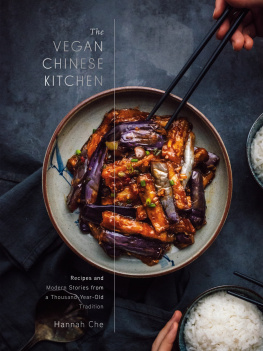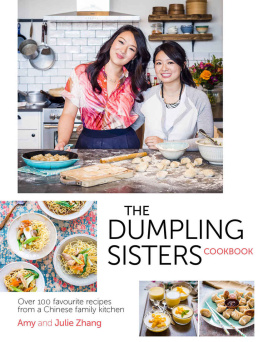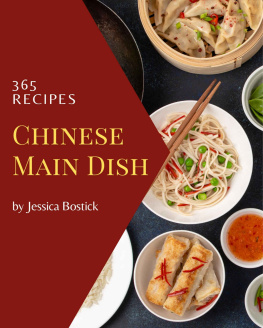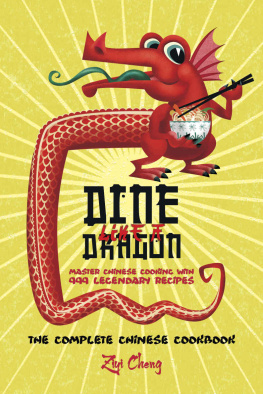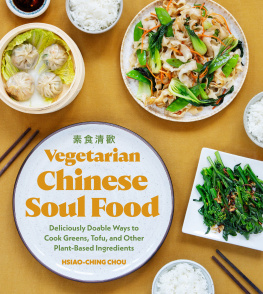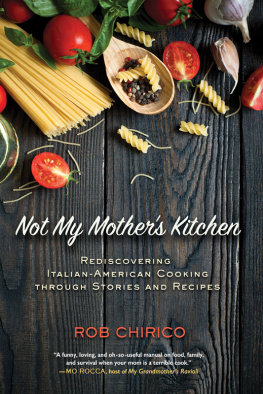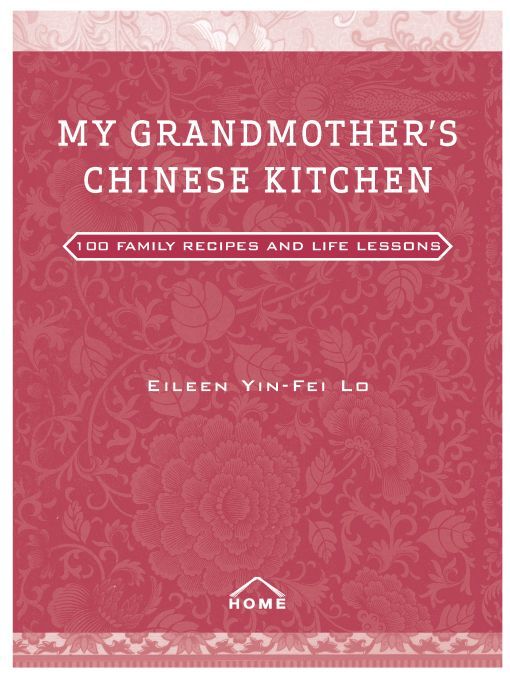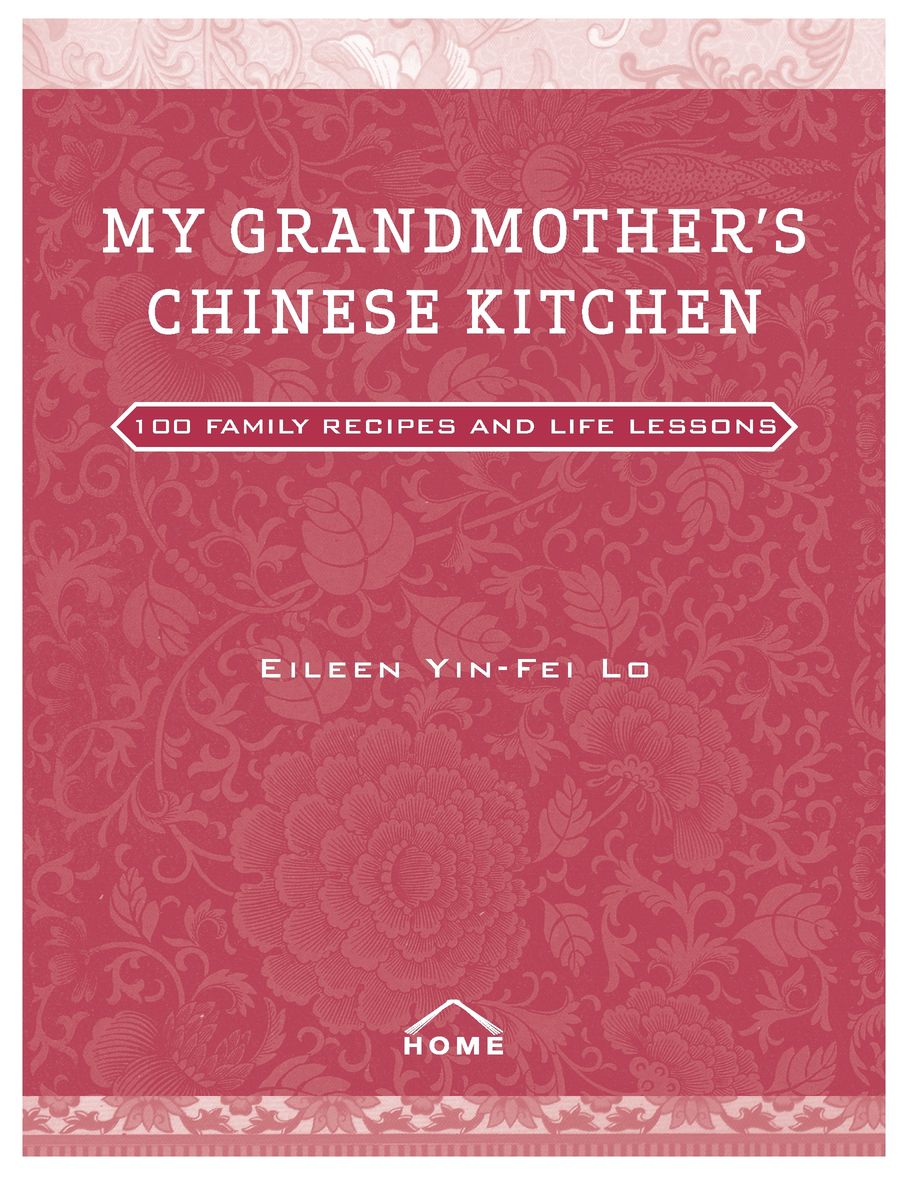Table of Contents
BOOKS BY EILEEN YIN-FEI LO
The Dim Sum Book: Classic Recipes from the Chinese Teahouse
The Chinese Banquet Cookbook: Authentic Feasts from Chinas Regions
Chinas Food (coauthor)
Eileen Yin-Fei Los New Cantonese Cuisine
From the Earth: Chinese Vegetarian Cooking
The Dim Sum Dumpling Book
The Chinese Way: Healthy Low-Fat Cooking from Chinas Regions
The Chinese Kitchen
The Chinese Chicken Cookbook
This book is, as always, for those I love, and upon whose counsel and taste I rely:
my husband, Fred, and my children, Christopher, Elena and Stephen.
To this small family I add, with joy, my granddaughter, Elliott Antonia,
to whom I have given the name Siu Fung, or Little Phoenix,
and whom I call Siu Siu. A special thanks belongs to
Carla Glasser, my agent, who works very hard
on my behalf. Very hard.
INTRODUCTION
MY GRANDMOTHER

NOW THAT I AM A GRANDMOTHER, I realize how important it is that I impart some of my experiences to my granddaughter, Siu Siu. Her mother will, as did my mother, give her most of her basic lessons in life. Reserved for me will be two pleasures: first simply enjoying and loving her, and second, seeing to it that my granddaughter learns and keeps whole many aspects of her ancestral, partially Chinese, culture and, quite important to me, her culinary heritage. It was what my grandmother, my Ah Paw, gave to me when I was a girl in China, in those many, many times I visited her and her kitchen. I learned manners and discipline, aspects of proper behavior that I adhere to today, patience and traditional tested ways of doing things. Not only did she teach me to cook practically, but saw to it that I learned as well the methods and philosophies of cookery, the joy of creation. She inculcated in me the truth that cooking well for someone is giving love in a most tangible way. The dishes I learned from my grandmother I cook to this day, very much in her way, her classics, her tradition. I am her heirloom. These my granddaughter will learn, as she grows.
Allow me to share my Ah Paw with you.
My maternal grandmother, my Ah Paw, was a most unusual and wondrous woman. When I was growing up in the Guangdong district of Sun Tak, I would not mind walking the more than two hours it took to go from my village to hers because I wanted to be with her as much as I was able. I spent most of my holidays from school as well as many weekends with her, and much of my extended school vacation time, with the blessings of my mother, Lo Chan Miu Hau, her daughter.
Her formal title was Loi Joh Moh, or grandmother of my mothers side of our family, and she had been our matriarch since the death of her husband, Ah Gung, in the Sino-Japanese War. In fact, because he had been so actively anti-Japanese, all traces of him in our family had been burnedphotographs, letters, clothing, official documents of his standing as a municipal mandarin. These were followed by similar burning of all family records so as not to provide information that might be used by the Japanese invaders, which explains why few pictures of my family exist, and none of my Ah Paw.
The words Ah Paw are actually a diminutive, quite like Grandma in English. She was a small woman, very thin, and weighed only about seventy pounds. Her feet had been bound as a baby and were only three inches long, always encased in tiny black silk slippers over white socks, a vivid vestige of that almost feudal custom wherein womens feet were bound to demonstrate not only that they were high-born but were so well off that it was never necessary for them to need to walk, that everything would be done for them. Bound feet were symbols of a life of ease for Ah Paw, who never walked more than a few steps, the shortest of distances, in all the years I was with her. She was helped by her servants, occasionally by me. For her meals, a table was brought to her and whatever family attended sat arrayed around her. She was not, in fact, pleased that my mother, when she was a little girl of ten, tore off her own foot bindings and refused thereafter to have her feet bound.
She only wore black sam fu, those loose blouse-and-trouser combinations, had her black, gray-streaked hair pulled back and wound into a bun. In the colder winter months she wore a wide black silk headband embroidered with pearls and jade. The only other jewelry or ornamentation I ever saw her wear were golden hoops in her pierced ears. She spent all of her days in her combined living room and parlor. Her servants Sau Lin, or Beautiful Lotus, and Ah Guk, Chrysanthemum, would support her if she needed to go any significant distance, such as a walk to her vegetable garden. Otherwise she tottered by herself from her bedroom to her living room each day. Occasionally I would provide support for her as we walked into her open plaza so she could sit in the sun and talk with her friends, women only. She was quite independent despite her inability to walk properly.
She was aristocratic, spoke softly, never raised her voice in anger that I can remember and was looked upon within the family as a final arbiter. She was an autocrat as well and called Yee Dai Yun by outsiders, which translated loosely as the revered first wife of the second son of my great-grandfather. Within our family she was referred to by her relationships to individual daughters, nieces, cousins and so on. I never knew her name. She was always only, Ah Paw.
Ah Paw was steeped in the religion of Buddha and the manners and behavior of Confucius. She burned incense throughout her days to the heavenly gods, whom she hoped looked after her family members both dead and alive. She passed her prayer beads through her fingers very often each day, praying for her late husband and son, and the two grandsons who had died as infants. When she spoke it was with softness, very softly, and she taught, with traditional adages and aphorismsmost of which, as it turned out, was about food and its consumptionto illustrate her teachings. She called me Ah Fei, which to me was an endearment; to her it was a pet name that she said indicated I was intelligent and could fly. I wanted to be with her, just to sit on the floor next to her divan as she talked about proper, traditional ways of doing things, how things were, as they should be, in her world. I loved staying with her at her house because I would sleep with her in her big, intricately carved red-lacquered bed, the bed that had been part of her marriage dowry.
Speak quietly and softly, she would caution me, bun hau tak yan jung, which meant that if you spoke badly of people, all others would never like you.
Bun leg tak wun moon dum dum, she would say, as I listened, suggesting that if I used my energy to help someone, to do a favor, I would be rewarded with a bowl of rice or sweets.
Do not be a fan tong, she would caution, which meant that I should not sit and do nothing in the manner of a fan tong: a rice bucket, which cannot move. Rather, I should be active.
In tandem with this she would tell me not to be a bun tong soi, a half-filled bucket of water. Instead, I should finish whatever task I was given, even to the extent of doing it repeatedly until it was done right.



